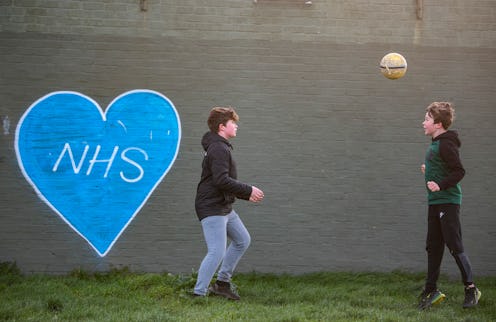News
People Without Medical Training Can Still Volunteer At The NHS' Coronavirus Scheme

With the UK currently on lockdown to prevent the spread of COVID-19, it seems like people have a lot more spare time on their hands. On Tuesday March 24, as the number of UK deaths from the disease rose to 422, Health Secretary Matt Hancock called for 250,000 people to sign up for the NHS Volunteer Responders scheme to “protect the most vulnerable, reduce pressures on our NHS and care system and save lives.”
With The Independent reporting that the scheme had attracted more than 170,000 volunteers within hours of the initiative’s launch on Tuesday 24 March, the British public is clearly keen to get involved and ease the strain on our NHS. But do you need medical training to volunteer with the programme?
In short, no. According to NHS England, the government is simple looking for people who are over 18 in “good health” to help the most vulnerable people in their communities. (It is not yet clear how the NHS will assess the health of those involved.)
The tasks can be as simple as delivering medicines from pharmacies, driving patients to appointments and collecting them from hospital or making regular phone calls to people isolating in their homes.
But even if you have a pre-existing condition or are in a high risk group, there’s still ways you can get involved, with volunteers unable to leave the house offering support over the phone. Should you start showing symptoms midway through your volunteering, you can pause things and resume when you have fully recovered. For more information or to express interest, visit goodsamapp.org/NHS where you can fill in details. Checks will be carried out and if accepted, you will be given access to the GoodSAM Responder app to find local volunteer opportunities.
NHS Director of Primary Care Dr. Nikki Kanani said: “This is one of those once-in-a-lifetime moments where a single action from one person can be the difference between life and death for another, and simple acts of kindness are going to make all the difference in keeping some of the most vulnerable people well and out of hospital.”
The scheme is one in a long line of programmes from the government to help the NHS during the growing outbreak of COVID-19. Final year medical students have seen their graduation dates brought forward and will be able to help treat patients in busy hospitals.